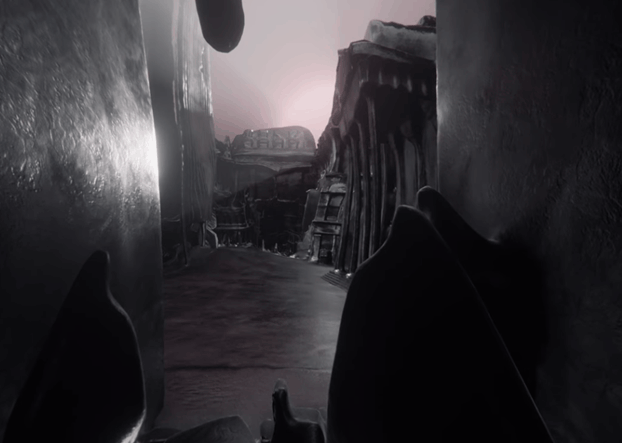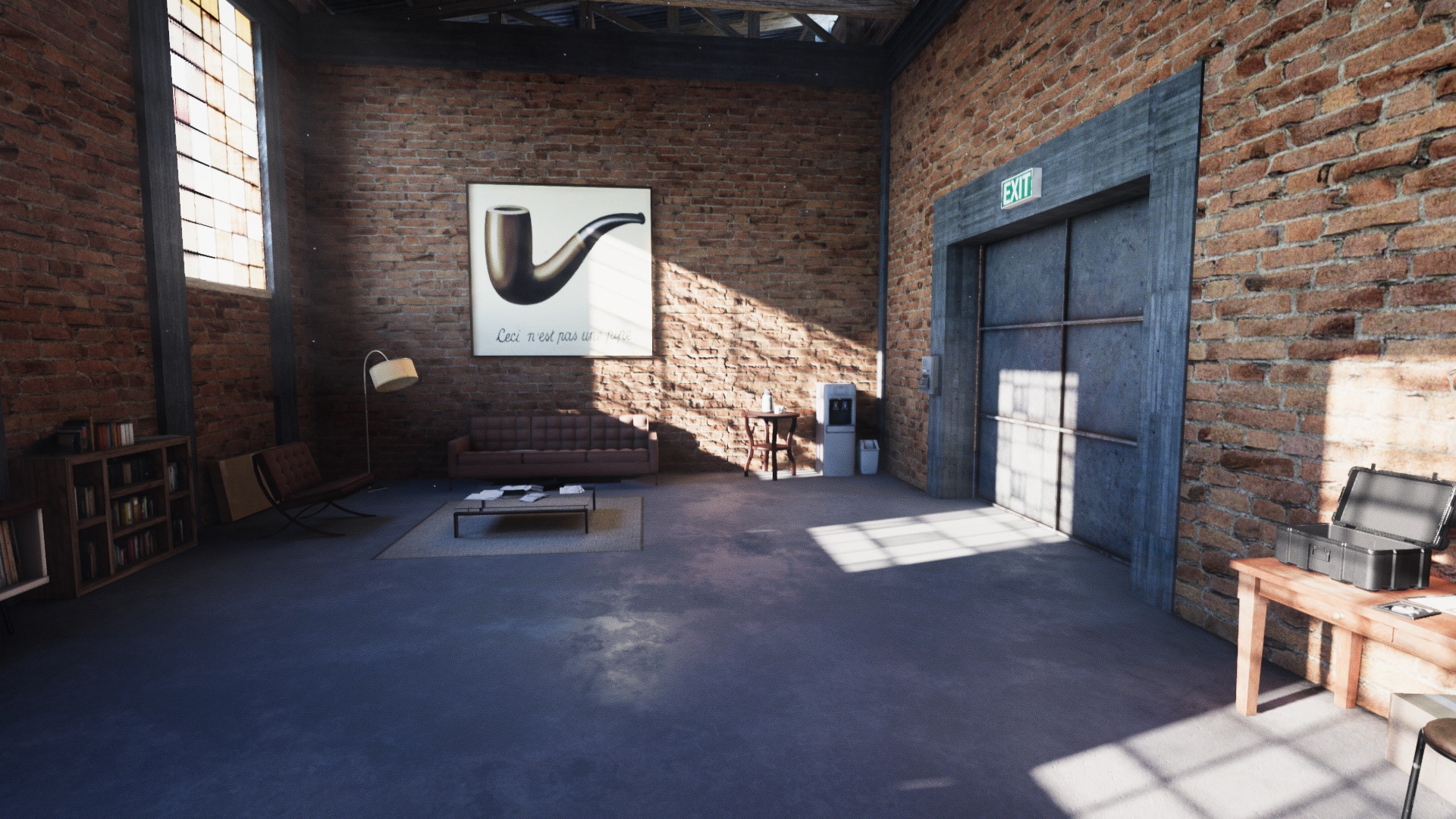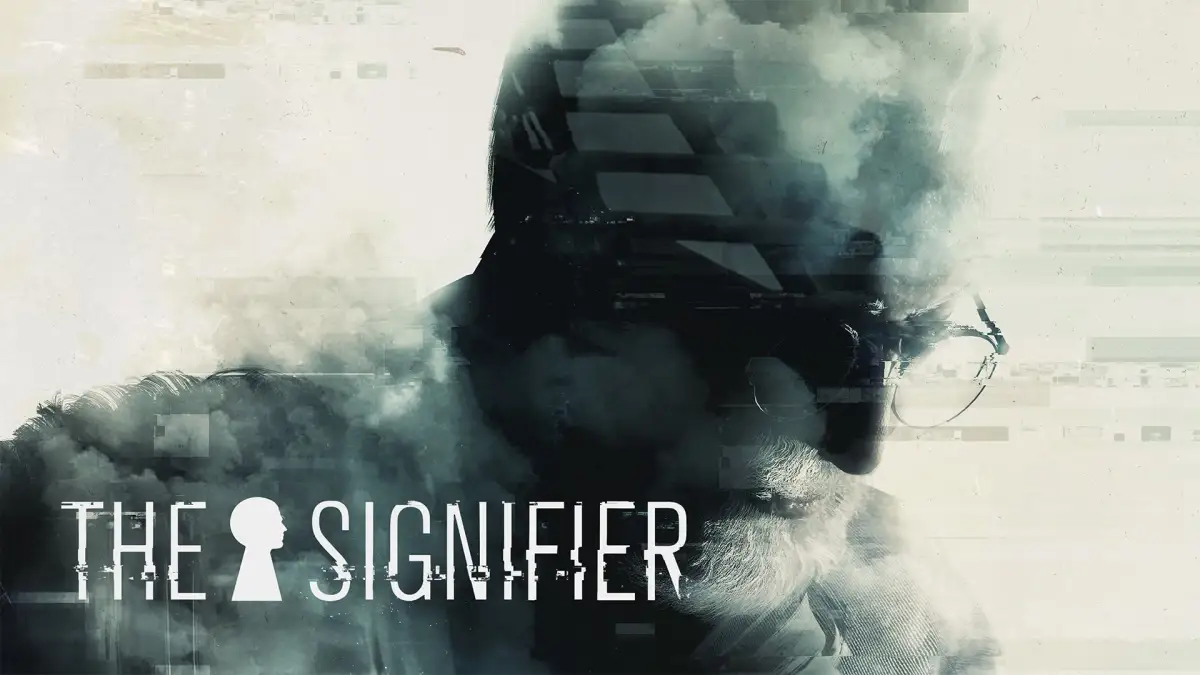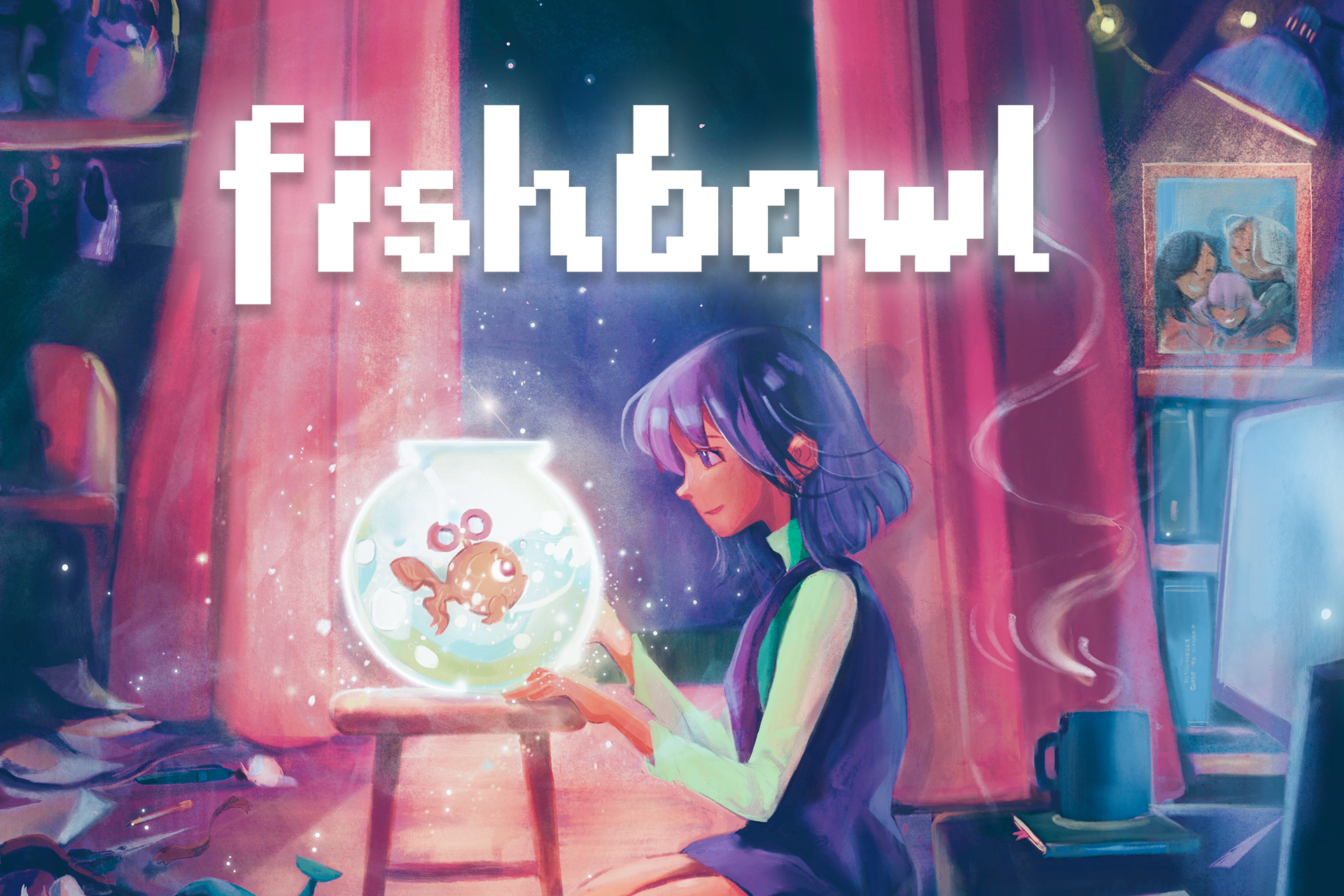You know the “Crocodile” episode of Black Mirror? The one where a woman kills a whole bunch of people trying to protect herself from a police force that can solve crimes by reconstituting memories? Playmestudio’s The Signifier reminds me of that.
Announced at the GDC Day of the Devs event earlier this year, The Signifier tasks you with uncovering the truth behind a death by unlocking the deceased’s memories. It’s a curious idea that puts a new spin on traditional investigation mechanics. You’ll still scan meticulously crafted environments for clues and work out where they belong, but the ability to move between the real world and varied recreations of it adds complexity.
I was recently privy to a walkthrough of two sections of the game, presented by Creative Director David Fenner. What I saw was a promising, mind-bending thriller with one foot amongst walking sims and the other in the investigation genre alongside the likes of Frogwares’ Sherlock Holmes games.
The Signifier begins with a cold open. You play as a man in a laboratory discovering that the vice president of an enormous technology company has died overnight, apparently having taken her own life. However, this being a mystery game, things aren’t as simple as that. The man is scientist Frederick Russell, who has created a device that enables access to recorded memories. And the cause of death? Well, that’s where Frederick’s device and the player’s ingenuity come in.

With the premise sketched out, you’re whisked across the city to conduct a physical inspection of the VP’s sumptuous apartment. Here, you can poke around to get an idea of the layout and ask a few questions of a surly officer standing guard. To get answers, though, you must return to the lab, and that’s when things get interesting.
You enter into a reconstruction of the VP’s memories, which comprise two states: objective and subjective. The objective state represents an approximation of sense data — sight, sound, touch, and so on. Even so, it’s a Dali-esque realm of twisted and melted objects, a representation of the imperfection of human memory.
Things get even weirder in the subjective state. Emotional information is layered atop the objective memory, parsed through the interpretations of an AI. The process results in things that don’t make much sense without context from later in the game, such as a photo of a dog following the player around the apartment.

Switching among the real, the objective, and the subjective is key to progression, as clues found in one unlock new information in the others. And the clues themselves aren’t always straightforward, needing to be reconstructed through perspective and time, reminiscent of similar mechanics in echochrome or Tacoma. This process makes for a trippy and multilayered gameplay loop that seems rewarding thanks to its complexity. However, Fenner said that Playmestudio is aiming to avoid having people get stuck on puzzles and so has included a robust hint system.
Movement among the three states makes for a novel gameplay experience, but Fenner said The Signifier’s design runs deeper than that.
Its origins lie more than six years in the past, as an experiment and a research project. Fenner talked about his interests in psychoanalysis, saying that he was inspired by the way that different perspectives in dreams, for example, have different meanings. He had witnessed how some games enable a shift in perspective to serve the gameplay (Tom Clancy’s Ghost Recon: Future Soldier and Eidos Montreal’s Deus Ex games come to mind.) and wanted to make those mechanics a narrative vehicle.

That certainly seems to have been achieved with The Signifier. There’s a real sense of cohesion between this reality-flipping gameplay and story progression, and you can clearly see how the one has informed the other.
I’m less convinced by the narrative itself. From what I saw, Frederick is little more than an avatar to carry out the player’s bidding, and there was little reason to care about the VP. It all felt like framing for the ideas and not much else.
I’m hopeful that that impression is because I only saw relatively brief snippets from parts that don’t invite deep characterization. Fenner did mention that the player will come up against personal dilemmas for Frederick, such as interacting with his daughter, which may add impact to the story.
Fenner said that players will have some influence over events, particularly towards the end. He mentioned subtle choices throughout that can change things, as well as Frederick being a vehicle for the player to express their own beliefs with respect to regulation or technology, among other subjects. These choices also extend to interactions with the police, with players able to withhold information or lie if they want to.
This theme of player expression extends to Fenner’s creative intentions for The Signifier. He insisted that he isn’t aiming to preach or make a statement about his own opinion. Instead, he said that he wants to “provide the context and the dangers of technology,” as well as offer insight into what we know about the mind and psychoanalytical theory. He sees this game as a way of sharing information and knowledge to open up the discussion about AI and privacy and other related issues.
A bit like, well, Black Mirror — except maybe not so nihilistic.
When I first saw The Signifier, I was confused. The initial trailer came across as an unconvincing mess, but seeing it in more depth reveals the order within the chaos. It is a feast for the senses, with the gameplay and thought-provoking themes to match.
You’ll be able to get your hands on it fairly soon, because The Signifier will launch on PC on Oct. 15. It will release on PlayStation 4 and Xbox One in early 2021.






Published: Sep 2, 2020 09:00 am